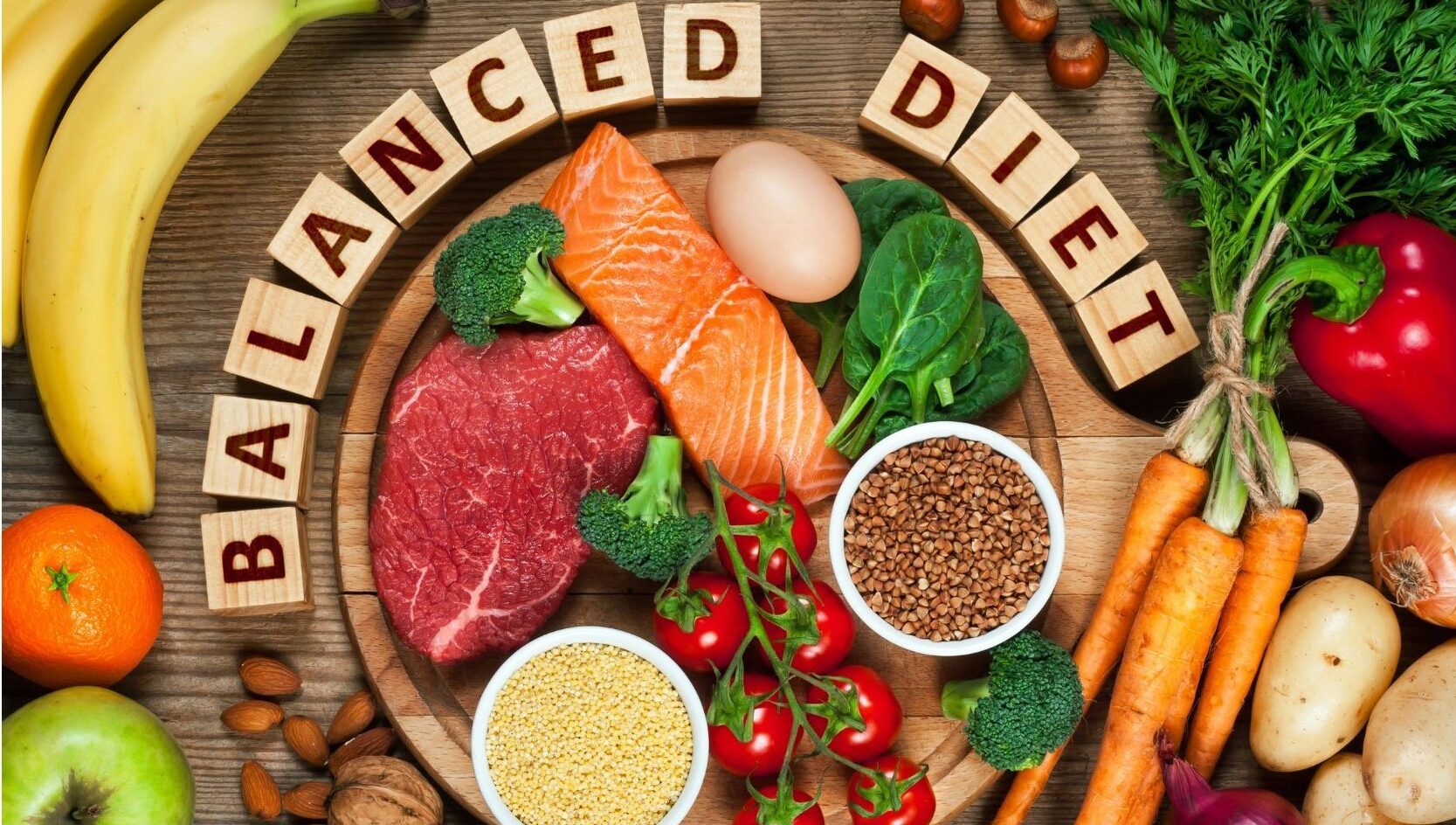Healthy Diet: Nourishing Your Body and Mind
Maintaining a healthy diet is not just about counting calories; it’s a holistic approach to nourishing your body and mind. In this article, we will explore the components of a healthy diet, its benefits, and practical tips to incorporate it into your daily life. A healthy diet is more than a temporary eating plan; it’s a lifestyle that promotes overall well-being. It involves consuming a variety of foods that provide essential nutrients, energy, and support for bodily functions. As we delve into the world of healthy eating, let’s understand why it’s a crucial aspect of a fulfilling life.
Components of a Healthy Diet
Balanced Macronutrients
A healthy diet comprises the right balance of macronutrients—carbohydrates, proteins, and fats. Each plays a vital role in sustaining bodily functions, providing energy, and supporting growth and repair.
Rich in Vitamins and Minerals
In addition to macronutrients, a healthy diet includes a plethora of vitamins and minerals. These micronutrients are essential for various physiological processes, from maintaining healthy skin to supporting a robust immune system.
Adequate Hydration
Water is a fundamental component of a healthy diet. Staying adequately hydrated is crucial for digestion, nutrient absorption, and overall bodily functions. It also aids in weight management and promotes clear skin.
Benefits of a Healthy Diet
Weight Management
A well-balanced diet contributes to maintaining a healthy weight. By providing the body with the right nutrients, it regulates metabolism and prevents excessive calorie intake.
Improved Energy Levels
The foods we consume directly impact our energy levels. A healthy diet, rich in complex carbohydrates and proteins, provides sustained energy throughout the day.
Enhanced Mood and Mental Well-being
There is a profound connection between diet and mental health. Nutrient-dense foods, such as omega-3 fatty acids found in fish, play a role in brain function and can positively impact mood.
Choosing Whole Foods
Importance of Whole Foods
Whole foods, in their unprocessed state, retain maximum nutrients. Fruits, vegetables, whole grains, and lean proteins are excellent choices for a nutrient-dense diet.
Examples of Nutrient-dense Foods
- Dark leafy greens
- Berries
- Quinoa
- Lean poultry and fish
Meal Planning for Health
Creating Balanced Meals
A key aspect of a healthy diet is creating well-balanced meals. This involves incorporating a variety of food groups to ensure the body receives a range of nutrients.
Portion Control and Mindful Eating
Being mindful of portion sizes helps prevent overeating. Eating slowly and savoring each bite allows the body to recognize satiety, promoting a healthier relationship with food.
Impact on Physical Health
Reduced Risk of Chronic Diseases
A healthy diet contributes to the prevention of chronic diseases such as heart disease, diabetes, and certain cancers. It supports overall cardiovascular health and helps maintain optimal blood pressure and cholesterol levels.
Better Immune System Function
Nutrient-rich foods strengthen the immune system, enhancing the body’s ability to fight off infections and illnesses. Vitamins and minerals, particularly vitamin C and zinc, play crucial roles in immune function.
Connection Between Diet and Mental Health
Nutrients that Support Mental Well-being
Certain nutrients, such as omega-3 fatty acids, antioxidants, and vitamins B and D, contribute to cognitive function and emotional well-being.
The Gut-Brain Connection
Research indicates a strong connection between gut health and mental health. A diet rich in fiber and probiotics supports a healthy gut microbiome, positively influencing mood and cognitive function.
Common Misconceptions About Diets
Fad Diets vs. Sustainable Choices
Many fall victim to fad diets that promise quick results but lack sustainability. Opting for long-term, balanced choices is key to achieving and maintaining optimal health.
Understanding Dietary Needs
Individual nutritional requirements vary based on factors such as age, gender, and activity level. It’s essential to understand and meet these needs for overall well-being.
Tips for Incorporating a Healthy Diet
Gradual Changes for Long-term Success
Rather than making drastic changes overnight, gradually incorporate healthier choices into your diet. This approach increases the likelihood of sustainable habits.
Seeking Professional Advice If Needed
If unsure about dietary needs or facing specific health concerns, consulting a nutrition professional can provide personalized guidance.
Healthy Snacking Habits
Nutritious Snack Options
- Fresh fruits
- Nuts and seeds
- Greek yogurt
- Vegetable sticks with hummus
Avoiding Processed Snacks
Limiting processed snacks high in added sugars and unhealthy fats contributes to overall health and supports weight management.
Staying Hydrated
Importance of Water Intake
Water is essential for bodily functions, including digestion, nutrient transport, and temperature regulation. Adequate hydration is vital for overall health.
Effects of Dehydration on Health
Dehydration can lead to fatigue, headaches, and impaired cognitive function. Ensure you meet your daily water intake needs to stay hydrated and healthy.
Physical Activity and Nutrition
Synergy Between Diet and Exercise
A healthy diet complements physical activity, providing the necessary fuel for workouts and aiding in muscle recovery.
Fueling the Body for Workouts
Consuming a balanced mix of carbohydrates and proteins before and after exercise optimizes performance and supports muscle growth and repair.
Special Considerations for Different Age Groups
Children and Adolescents
Establishing healthy eating habits from a young age sets the foundation for lifelong well-being. Encourage a diverse and nutrient-rich diet for growing bodies.
Adults and Seniors
Adapting dietary choices to age-related changes, such as metabolism and nutrient absorption, is crucial for maintaining health as we age.
Eating Out Healthily
Making Smart Choices at Restaurants
- Opt for grilled or steamed options
- Choose whole grains
- Include a variety of vegetables in your meal
Avoiding Excessive Calorie Intake
Being mindful of portion sizes and making conscious choices when dining out contributes to a healthy diet.
Conclusion
In conclusion, embracing a healthy diet is a transformative journey toward overall well-being. From nourishing your body with essential nutrients to supporting mental health, the benefits are profound. Remember, it’s not about perfection but making sustainable choices that align with your lifestyle.
Frequently Asked Questions
Can I follow a healthy diet and still enjoy my favorite foods?
Absolutely! A healthy diet allows for flexibility and moderation, so you can still indulge in treats occasionally.
How can I create a balanced meal plan without feeling overwhelmed?
Start small by incorporating one healthy change at a time and gradually build on it. Consult a nutrition professional for personalized guidance.
Are supplements necessary for a healthy diet?
In most cases, a well-balanced diet provides sufficient nutrients. However, consult with a healthcare professional if you have specific concerns or deficiencies.
Can a healthy diet help with weight loss?
Yes, a healthy diet plays a crucial role in weight management by promoting overall health and regulating metabolism.
How can I encourage my family to adopt a healthy diet?
Make it a collective effort! Involve your family in meal planning, try new recipes together, and educate them about the importance of nutritious foods.







